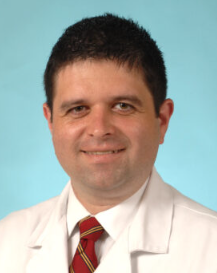The medical and research communities across the nation are mourning the sudden passing of Dr. Brian Andrew Van Tine, a world-renowned oncologist and Associate Professor of Medicine and Pediatrics at Washington University in St. Louis. Dr. Van Tine, who also served as Sarcoma Program Director and Co-Director of both the Phase 2 and Adolescent & Young Adult Programs at the Alvin J. Siteman Cancer Center, passed away on Saturday, November 8, 2025, leaving behind a legacy defined by compassion, innovation, and groundbreaking contributions to cancer research.
News of his passing has sent shockwaves throughout the global oncology field. Colleagues, patients, and research collaborators have expressed profound sorrow at the loss of a man widely regarded as a visionary in sarcoma research and treatment. “He was a giant in the field of sarcoma and dedicated his life to transforming sarcoma care,” one colleague shared. “It’s a devastating loss — he will be deeply missed by everyone who had the privilege to work with him.”
Dr. Van Tine’s work fundamentally shaped the understanding of sarcoma biology, focusing on novel therapeutic approaches that have already changed patient outcomes worldwide. His translational research laboratory was the first to identify the loss of ASS1 expression in roughly 90% of sarcomas — a discovery that opened the door to new treatment strategies, including arginine deprivation therapy and glutaminase inhibitors. His team’s studies revealed how arginine starvation could overcome chemotherapy resistance, findings that are currently being tested in phase II clinical trials.
Beyond his laboratory achievements, Dr. Van Tine was deeply admired for his commitment to patients and for bridging the gap between cutting-edge science and compassionate clinical care. His colleagues describe him as a physician-scientist who combined brilliance with humility, ensuring that every patient felt heard, valued, and supported throughout their treatment journey.
Born with an innate curiosity and drive to make a difference, Dr. Van Tine earned his Bachelor of Science in Chemistry and Biochemistry from the University of Arizona in 1995 before completing both his M.D. and Ph.D. at the University of Alabama at Birmingham in 2005. His doctoral research, conducted under Profs. Louis T. Chow and Thomas R. Broker, focused on the role of Human Papilloma Virus (HPV) in cervical cancer development — work that set the foundation for his lifelong passion for cancer biology.
He later joined Washington University in St. Louis/Barnes-Jewish Hospital, where he completed his Internal Medicine Residency and Medical Oncology Fellowship. During his postdoctoral studies, Dr. Van Tine trained under Dr. James J.D. Hsieh and Dr. Matthew Ellis, expanding his expertise in mouse genetics, genomics, and translational oncology. Over the years, his research led to numerous publications, speaking engagements, and international collaborations that have influenced oncology practices worldwide.
Dr. Van Tine’s colleagues and students alike remember him not only as a brilliant scientist but also as a mentor and friend who inspired those around him with his relentless optimism and dedication to discovery. “He had a rare ability to see possibility where others saw obstacles,” one researcher reflected. “His work will continue to guide sarcoma research for generations to come.”
Washington University in St. Louis and the Siteman Cancer Center have issued heartfelt condolences to Dr. Van Tine’s family, friends, and colleagues. The university described his passing as “a profound loss for the medical and academic community,” noting that his influence extended far beyond the institution’s walls.
Dr. Brian Van Tine’s legacy will live on through the countless patients whose lives he improved, the students and researchers he mentored, and the scientific advancements he made possible. His pioneering work in sarcoma research will continue to shape the future of oncology for years to come.
Funeral and memorial service details will be shared by his family and Washington University in the coming days.
May his passion for science, compassion for humanity, and enduring spirit continue to inspire all who follow in his footsteps.
